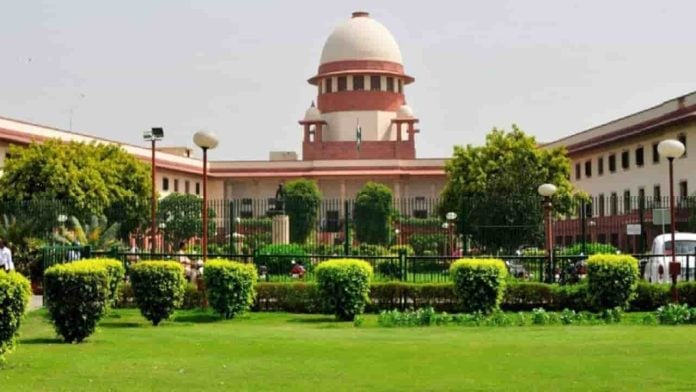The Supreme Court dismissed a petition as withdrawn on Friday that sought inclusion of Swami Chakrapani of Hindu Mahasabha in Shri Ram Janmabhoomi Teerth Kshetra, the trust constituted by the Government of India for the construction and management of Ram Temple in Ayodhya.
The bench of Chief Justice D.Y. Chandrachud and Justice P.S. Narasimha noted that there was no vested right in the petitioner to be included in the Ayodhya Trust.
The Counsel representing the petitioner contended that the vested right would have come into operation, if the rules and the qualifications had already been framed. Since the rules have not been framed and the Government would be doing so, this trustee should have been informed, he said.
While observing that nothing would happen if the writ petition was disposed of, the Bench told the petitioner to withdraw the plea and pursue his representation.
The Apex Court ‘refused’ to get into the matter and directed Chakrapani that if he wished to be a part of the Ayodhya trust, he should pursue his representation. The petitioner then withdrew the plea.
On November 9, 2019, the Supreme Court had drawn curtains over one of the longest-running battles in India’s legal history, the Ayodhya Title dispute. The first case in the matter was filed 134 years ago.
The Apex Court led by then Chief Justice of India Ranjan Gogoi, had given the disputed land of 2.77 acres to the Hindus, directing the Central government to make a trust for the construction of Ram temple there.
The Union of India was further ordered to give an alternative five acres of land at another place to the Uttar Pradesh Sunni Central Waqf Board for the purpose of building a Mosque as a replacement for the demolished Babri Masjid.


